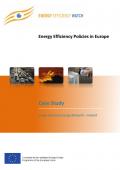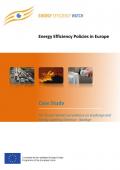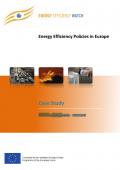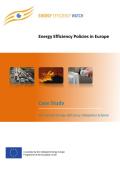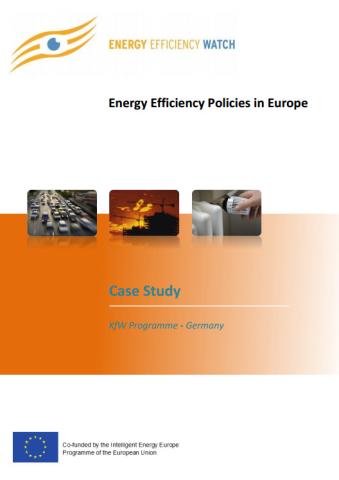
The German state-owned Bank for Reconstruction (Germ.: Kreditanstalt für Wiederaufbau, KfW) manages two programmes to improve the energy efficiency of German residential buildings through the “energy efficiency programme – energy-efficient construction and refurbishment”. The two programmes are (i) energy efficient construction (EEC) and (ii) energy efficient renovation (EER). While the EEC targets the construction of new buildings, EER addresses the refurbishment of existing buildings. The programmes have been started since 2009 targeting residential sector by following actions: (i) Construction of low energy buildings, and (ii) renovation towards low energy buildings as well as single measures. The overall aim of the policy is on enhancing the energetic quality of the German building stock.
This research from the Energy Efficiency Watch 3 project informs on the progress of EU Member States with regards to energy efficiency policies. The core objective of EEW3 is to establish a constant feedback loop on the implementation of European and national energy efficiency policies and thus enable mutual learning on effective policy making across the EU. It compiles 28 country reports, provides strategic conclusions for more effective policies and presents 10 case studies of well-established policy packages and a Feedback Loop Report. It thereby intends to improve the implementation of European energy efficiency policies on the energy demand side.

